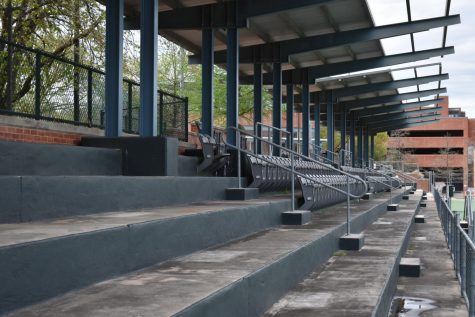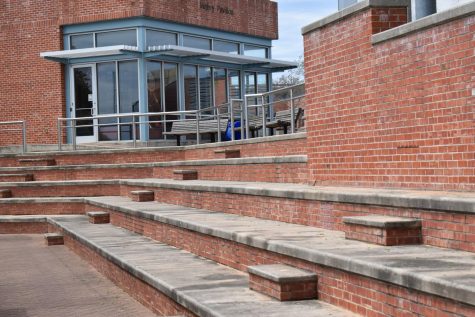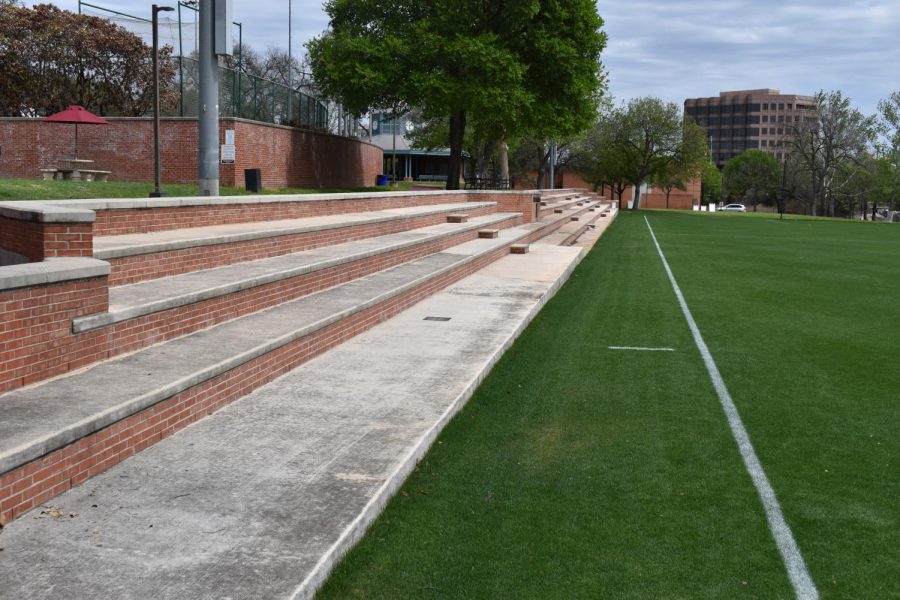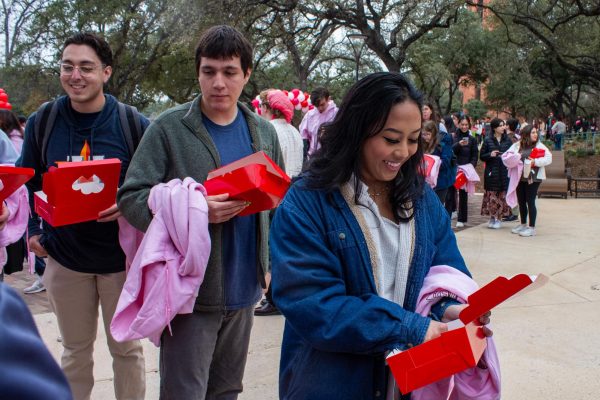Trinity sticks to no-fan policy despite SCAC’s greenlight
University cites ongoing COVID-19 concerns as reason for decision
The stands at Paul McGinlay Field will remain empty throughout the spring. Trinity announced on Wednesday that no fans will be allowed on campus at any athletic events despite the SCAC providing the greenlight to welcome fans. Photo by Claire Sammons.
On Friday, March 19, the Southern Collegiate Athletic Conference (SCAC) announced they would allow member institutions to create their own policies regarding spectators attending any non-tournament outdoor athletic events. According to the SCAC, these policies should be made considering each institution’s ability to safely host visitors during the COVID-19 pandemic and would begin on Friday, March 26.
The statement marks a change for the SCAC, who in January reiterated their decision to not allow spectators at any schools. In response to the SCAC’s change of tone, Trinity stated on Wednesday, March 24, that “no spectators will be allowed during home athletics contests or practices. Furthermore, no off-campus spectators are allowed anywhere on campus during such events or practices.”
Tess Coody-Anders, Vice President for Strategic Communications and Marketing, explained that this has been a difficult decision for the University to make and that many people were involved in the process.
“President Anderson chairs the SCAC’s Presidents Council, so the University was involved from the beginning of the discussion. Trinity has a no-visitors policy, but we evaluated the possibility of exceptions to that policy. We spent several days evaluating what made sense for Trinity as each campus is different. In particular, there was tremendous appreciation for the role spectators — students and parents in particular — play in supporting our athletes as they compete. We also discussed how much we miss the sense of community and the connections that have been lost by not having us all together during a match or game,” Coody-Anders said.
Despite the opening provided by the SCAC to allow fans, Trinity ultimately decided to stick with its policy of not allowing any spectators to attend games.
“Unfortunately, after careful review, it became clear that Trinity could not [host fans] safely and still be consistent with [the no-visitor] policy across all areas of campus life. With more than 30 events remaining on campus for the remainder of the semester taking place in the heart of our open campus, the decision was made to stay with the current policy,” Coody-Anders said.
On the same day that Trinity confirmed that no spectators would be allowed at sporting events, President Anderson also announced that undergraduate commencement would be taking place in-person this year in the football stadium, while commencement for graduate students will take place in Laurie Auditorium. According to Coody-Anders, differences between the nature of the events allowed for different policies for each.
“Commencement is a milestone event that takes place one day. The event conditions are highly controllable in terms of seating and our ability to enforce ProtecTU guidelines. There’s no sustained yelling or screaming and far less socialization. By comparison, there are more than 30 competitions slated on our campus in the coming weeks, some in multiple venues on the same day. We simply do not have the resources or confidence that we could provide for a safe exception to the no-visitors policy for that many events,” Coody-Anders said.

Despite the explanation of the unique risks that fans at sporting events present, many athletes, particularly seniors, are disappointed about this decision. Most are extremely grateful to have the opportunity to play at all, but are still sad that family and friends are unable to be involved in their last year of playing.
“It’s frustrating,” said senior Lindsey Peng, a defender on the women’s soccer team. “I have one more month of playing soccer left in my life, and my family and friends don’t get to be a part of that. I do believe that we are incredibly fortunate for the Tiger Network and what an absolutely fantastic job they do of broadcasting our games.”
While Trinity is choosing to not allow fans, most other SCAC schools are opening their doors to spectators after the conference’s green light. Southwestern University, the University of St. Thomas, Austin College, Texas Lutheran University, Schreiner University and Centenary College are all allowing fans in some capacity. Only Colorado College and the University of Dallas join Trinity in either keeping athletic events closed to the public or not announcing a specific change to their policies.
“I am thankful that we are getting to play at all, but it is disheartening to know that almost all other schools are going to allow limited home fans but Trinity isn’t. I know that there was legitimate thought put into this decision. It’s just a very hard year to be a senior,” Peng said.
Anticipating questions about why nearly every other SCAC school is inviting fans back while Trinity is not, the University states that Trinity is “an open campus, with venues located in the heart of our congregate living environment, making it nearly impossible to monitor and manage the safe administration of spectators at such events.”
This spectator policy also affects out-of-state students in unique ways. Typically, out-of-state parents will try to come for a long weekend to watch their kid play and see them after living apart in completely different states, but such opportunities will not exist this year.
“Being a senior, it definitely is hard to hear how our families won’t be able to watch us play for a final time. I am from California, so my parents would always fly out for a weekend of home games to be able to see me play in person. This year especially, they wanted to come during senior night to celebrate my time as a softball player. I know my fellow seniors were looking forward to this as well,” said senior pitcher Allie Holbrook.

Neil Verwillow, senior midfielder on the men’s soccer team, shared the common conflicting feelings of being upset but also grateful in general to the University for allowing games at all.
“The other seniors and myself are obviously disappointed there won’t be any fans for the last games of our careers, [but] we also are extremely appreciative of the effort and resources the University has put forth that enable us to have these games at all,” Verwillow said. “Regardless of the circumstances, it’s been a privilege to compete alongside my teammates and coaches. Plus, in a normal year, my time in a Trinity shirt would’ve ended back in November. Instead, I get to ride the high that is this sport all the way through April.”








